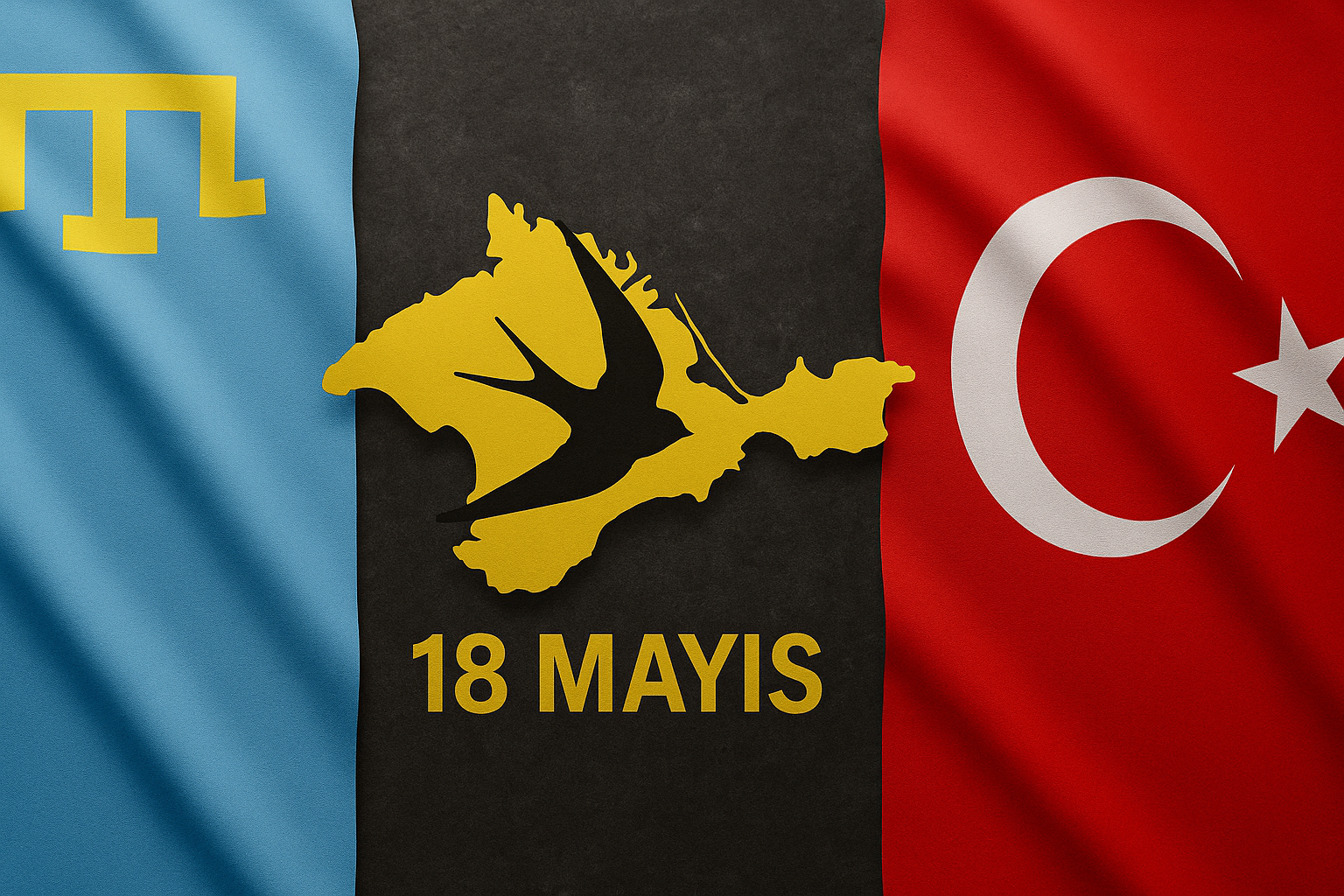Recognizing the deportation of Crimean Tatars as genocide: why Turkey is silent
15 May 14:42
The deportation of the Crimean Tatars on May 18, 1944, remains one of the worst tragedies of the twentieth century. In just a few days, more than 190,000 Crimean Tatars were forcibly removed by the Soviet authorities from their native Crimea to remote areas of Central Asia. Thousands died on the way or in the first years of exile.
Despite the scale, brutality, and distinct ethnicity of this operation, as of 2025, only seven countries have recognized it as genocide.
Ukraine was the first to take this step. on November 12, 2015, the Verkhovna Rada recognized the deportation of Crimean Tatars as genocide and proclaimed May 18 as the Day of Remembrance of the Victims of the Genocide of the Crimean Tatar People.
on May 9, 2019, Latvia became the first foreign country to officially recognize these events as genocide. On June 6, Lithuania followed with a similar decision.
The process of international recognition intensified significantly after Russia’s full-scale invasion of Ukraine in February 2022. The world began to take a closer look at the Kremlin’s historical policy and the latest crimes against Crimean Tatars.
In 2022, Canada became the first G7 country to recognize deportation as an act of genocide. In 2024, Poland, the Czech Republic and Estonia joined this list.
These steps are of great importance to the Crimean Tatar people as a symbol of historical justice and condemnation of the crimes of the totalitarian regime. However, unfortunately, among the countries that have recognized the genocide, there is still no country that has traditionally positioned itself as the main defender of the rights of Crimean Tatars – Turkey.
Читайте нас у Telegram: головні новини коротко
Historical justice for a historical ally
Turkey is the country that is linguistically, culturally, religiously and historically closest to the Crimean Tatars. According to the communities themselves, up to 3 million descendants of the Crimean Tatar diaspora live in Turkey.
That is why the Crimean Tatars are hopeful that the Turkish parliament will recognize the 1944 deportation as an act of genocide.
Turkey’s silence is painful for the Crimean Tatar people. In the context of Russia’s new crimes – kidnappings, torture, persecution of activists, “filtration” and prison sentences for pro-Ukrainian positions – recognizing the deportation as an act of genocide would not only be a gesture of historical justice, but also a powerful signal of political support.
Why is Ankara silent?
Turkey has built close ties with Russia in recent years, covering energy, trade, and defense (including the purchase of S-400 systems). Russians rank first among foreign tourists in Turkey – 6.5 million in 2024.
These factors complicate the decision to recognize the deportation of Crimean Tatars as genocide. Although official Ankara does not recognize the annexation of Crimea, its caution on the issue of genocide can be seen as an attempt to maintain a balance in relations with Moscow.
“This is based on economic and political reasons, Russian-Turkish interstate relations. I assume that if the May 18 deportation is recognized as genocide, Moscow may intensify the Kurdish issue or recall the events of 1915. At the same time, for Turkey and for every Turk, Crimea and the Crimean Tatars occupy a special place. We share the pain and joy of our Crimean Tatar brothers,”
– he told
Another important factor is the historical trauma of Turkey itself. Due to the international recognition of the 1915 Armenian deportation as genocide, Ankara is being extra cautious in using the term in international contexts.
Ilmi Umerov, a member of the Mejlis of the Crimean Tatar people, also notes that in addition to relations with Moscow, Ankara’s position is also influenced by internal issues, such as the Kurdish or Cypriot issues.
“There is the Kurdish issue and the Cyprus issue. Turkey has its own interests. Despite this, Ankara has consistently declared its support for the territorial integrity of Ukraine and non-recognition of the occupation of Crimea. We have a special attitude towards Turkey. We need its support – these are our blood relatives,”
– Umerov emphasized in a comment for
Every year, Turkey issues statements on May 18. In 2024, the Turkish Foreign Ministry reminded:
“Many elderly people, women and children have died because of the inhumane conditions in which the Crimean Tatars found themselves. Despite the fact that 80 years have passed since then, their deprived rights have not yet been restored, and their pain has not subsided. The illegal annexation of Crimea has opened a new page of suffering.”
In turn, the Crimean Tatar diaspora in Turkey periodically calls for the recognition of the deportation as genocide. However, these appeals are rarely transformed into specific political initiatives addressed to the government or the Grand National Assembly (Turkish parliament). Despite its active cultural activities, the diaspora has not yet been able to form a powerful political lobby capable of advancing the process of official recognition.
The non-recognition of the 1944 deportation as genocide by Turkey-as well as by any Muslim or Turkic state-is painfully perceived by Crimean Tatars. If small European countries and even distant Canada have taken this step, then Turkey, with its political weight, economic potential, and special role in the region, must finally decide to do the same.
After all, the deportation on May 18, 1944, was a deliberate action to destroy an entire people who survived the repression of the Soviet regime. It is time to give these events a fair assessment and call them by their true name: the genocide of the Crimean Tatar people.
Asif Aliyev, specially for









